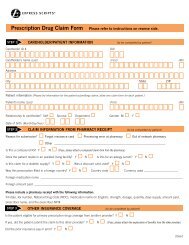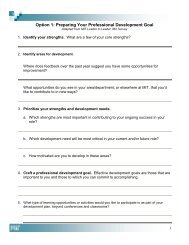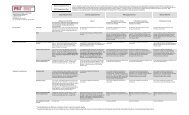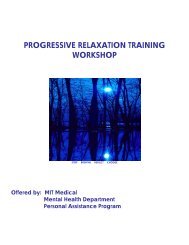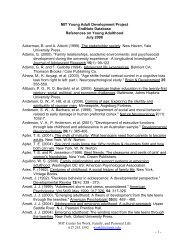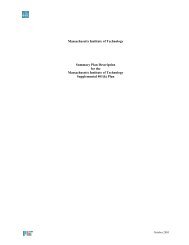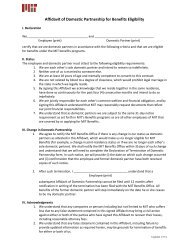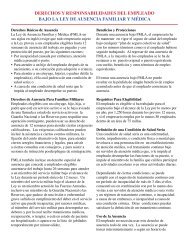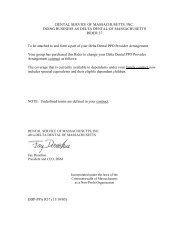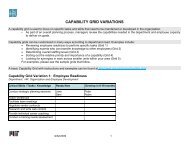Helping parents in developing countries improve adolescents' health
Helping parents in developing countries improve adolescents' health
Helping parents in developing countries improve adolescents' health
You also want an ePaper? Increase the reach of your titles
YUMPU automatically turns print PDFs into web optimized ePapers that Google loves.
Evidence: This area has been thoroughly studied <strong>in</strong> <strong>in</strong>dustrialized cultures, but also<br />
recently <strong>in</strong> cross-cultural studies (e.g., <strong>in</strong> Africa; Asia; the Balkans; Europe; the Middle<br />
East; North, Central and South America). Throughout this work, the associations between<br />
behavioural control and adolescent outcomes are clear. For example, <strong>parents</strong> attend<strong>in</strong>g<br />
to (and track<strong>in</strong>g) a child’s whereabouts and activities has been most extensively<br />
researched. Parental monitor<strong>in</strong>g/knowledge is associated with a decreased risk of drug<br />
and alcohol use, decreased sexual activity, later age of pregnancy, decreased depression,<br />
decreased school problems, decreased victimization and del<strong>in</strong>quency, and decreased<br />
7, 15, 16, 17, 18, 19, 20, 21<br />
negative peer <strong>in</strong>fluences.<br />
In one study, conducted among 11 cultural groups (<strong>in</strong> Bangladesh, Bosnia and Herzegov<strong>in</strong>a,<br />
Ch<strong>in</strong>a, Columbia, Germany, India, Palest<strong>in</strong>e and South Africa) monitor<strong>in</strong>g (as measured<br />
by the amount of knowledge <strong>parents</strong> have of their youth’s activities outside of the home;<br />
e.g., how they spend time and money, friends, etc.) was significantly predictive of lower<br />
antisocial behaviour <strong>in</strong> all 11 cultural groups. 7 The measurement of monitor<strong>in</strong>g was<br />
enhanced <strong>in</strong> another study of multiple cultures to <strong>in</strong>tegrate how much <strong>parents</strong> both try<br />
to know and succeed <strong>in</strong> know<strong>in</strong>g about their youths’ out-of-home activities. In that study<br />
of youth <strong>in</strong> Costa Rica, three ethnic groups <strong>in</strong> South Africa, and <strong>in</strong> Thailand, successful<br />
parental monitor<strong>in</strong>g was consistently related to lower levels of antisocial behaviour<br />
(e.g., <strong>in</strong>terpersonal violence, alcohol use, etc.), and particularly to lower levels of sexual<br />
behaviour (e.g., <strong>in</strong>tercourse, number of sexual partners). 36 These f<strong>in</strong>d<strong>in</strong>gs for sexual<br />
behaviour are consistent with those made <strong>in</strong> studies of eastern and western European<br />
youth. 17 One such study of 5000 Scottish adolescents used an extended measurement of<br />
parental behavioural control that <strong>in</strong>cluded monitor<strong>in</strong>g and limit-sett<strong>in</strong>g, as well as predict<strong>in</strong>g<br />
early sexual activity, number of sexual partners, condom use and contraception. 18<br />
Establish<strong>in</strong>g and enforc<strong>in</strong>g consequences is complicated. Consequences can take the form<br />
of los<strong>in</strong>g privileges, of be<strong>in</strong>g assigned tasks to “pay” for break<strong>in</strong>g the rules, or physical<br />
punishment. With regard to physical punishment, one study conducted <strong>in</strong> 6 <strong>countries</strong><br />
(Ch<strong>in</strong>a, India, Italy, Kenya, the Philipp<strong>in</strong>es and Thailand) exam<strong>in</strong>ed the impact of physical<br />
punishment on adolescent behaviours. Results demonstrated that high levels of physical<br />
punishment are universally associated with more aggression and anxiety. Another study<br />
(from the United States) <strong>in</strong>dicated that while physical punishment might promote shortterm<br />
conformity, it is strongly correlated with long-term behavioural deviance. 19<br />
Further research needed: Behavioural control consists of several components: parental<br />
knowledge about adolescent behaviour and attitudes, ongo<strong>in</strong>g monitor<strong>in</strong>g and supervision<br />
of adolescents’ activities and <strong>in</strong> the case of misbehaviour, subsequent impos<strong>in</strong>g of<br />
discipl<strong>in</strong>e or consequences. However, few studies exam<strong>in</strong>e all three aspects of this role<br />
together. Further research is needed to better understand the <strong>in</strong>terrelated effects of these<br />
concepts, how they function across cultures, and how programm<strong>in</strong>g might address them<br />
comprehensively <strong>in</strong> order to affect adolescent outcomes.<br />
Additionally, given the multi-dimensional nature of the process of parental monitor<strong>in</strong>g and<br />
behavioural control, especially across cultures, there is scope for additional research to expla<strong>in</strong><br />
the mechanism by which parental monitor<strong>in</strong>g actions result <strong>in</strong> adolescent behavioural outcomes.<br />
12 <strong>Help<strong>in</strong>g</strong> <strong>parents</strong> <strong>in</strong> develop<strong>in</strong>g <strong>countries</strong> <strong>improve</strong> adolescents’ <strong>health</strong>



